Hello you lovelies, and welcome to a feature that’s going to be eye-opening, interesting and inspiring in equal measure. A little while ago, we featured the brilliant Sanyukta Shrestha here on our beloved wedding blog, and in that feature, we mentioned Sanyukta’s commitment to ethical wedding dress production.
Well, it interested and intrigued so many of you that we invited Sanyukta back to tell us more about her eco-friendly garment production techniques. We always knew you were a caring bunch but it seems that more and more these days, the provenance of your bridal gown really matters.
Having spent last Friday afternoon with Sanyukta at her beautiful Beluhi boutique in Fulham, I can genuinely say I am feeling utterly inspired by this wonderful individual and her passion and commitment to ethical wedding dress production. By the way, did any of you catch the Instagram live sessions I broadcast with Sanyukta last week? I found it both fascinating and mesmerising hearing and seeing Sanyukta talk about creating bridal gowns from milk fibre (which is soft as silk by the way).
Tell us a little more about your eco-friendly garment production.
“Our gowns are made from eco fabrics such as organic cotton, hemp silk, milk, silk and bamboo. The used fabrics in my collections have skin nourishing properties. Each style within my collection follows ecologically green guidelines, with fabrics from ethical and Fairtrade certified producers around the world and more than 50% of these fabrics are sourced from Nepal itself.”
“My decision to use these natural fibres in the collection underlines my commitment to environment and development. Through blending sustainability with my ethical beliefs, I also try to create opportunities for village women in Nepal, by merging and turning their traditional skills into delicate fabrics and designs.”
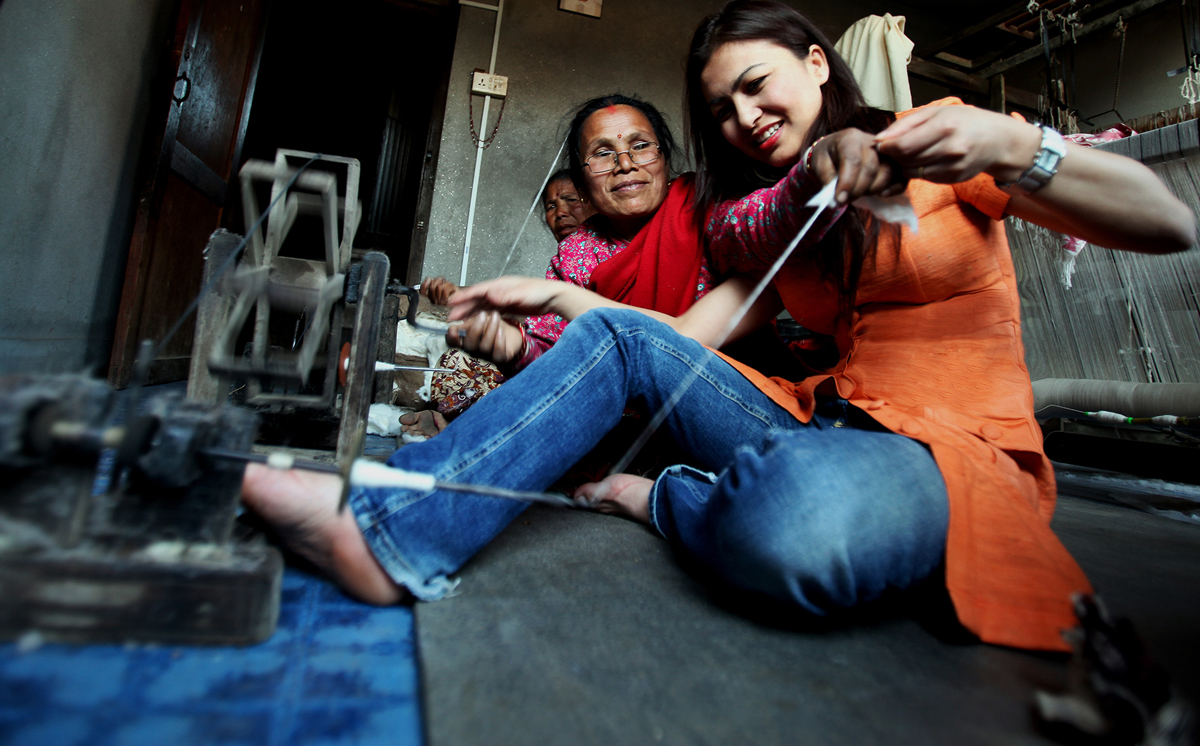
Why is this so important to you?
“A lot of people do not realise the impact fast fashion has on our planet and on all the people we share this beautiful planet with. The increase in the amount of clothing that people consume is harmful to the environment. Statistics suggest that on average, UK consumers send 30kg of clothing and textiles per capita to landfill each year and that 1.2 million tonnes of clothing went to landfill in 2005 in the UK alone. It is getting more serious day by day. Besides, it’s not just thousands of cotton farmers who are dying each year but also the many (under aged) workers in sweat-shops who live and work in terrible conditions to earn a poor salary.”
“As a person and as a designer I feel responsible for what I do and how I lead my life and career. Thus I make sure production process of my collection is ethical and as eco-friendly as possible. I source fabrics through Fairtrade and certified eco suppliers all around the world. Through our collection we support sustainability, Fairtrade, women’s equality and ethical workforce projects.
We help create opportunities for women in Nepal providing jobs for marginalised women and keeping artisan crafts alive. Small cottage industries and hand looming are on the verge of extinction and we can help improve their livelihood by providing necessary training and producing products made by these home-based workers.”
Is eco-friendly production totally integral to your business? Does this spill over into other areas of your business too away from production?
“We use eco-friendly, biodegradable and upcycled materials. The hemp, bamboo and organic cotton used across our collections contain fibres that are hand spun to create a yarn that can be turned in to fabric. We work with social organisations in Nepal to provide jobs for marginalised women and keep the artisan craft alive. The practice requires a lot of skill and patience, however, the rewards of using this ethical production technique are great, and avoid the high energy consumption that steam or electric powered spinning would otherwise use. Hand spun, hand woven and hand embroidered fabrics made by these amazing artisans in Nepal is certainly soul of my gowns.”
“Additionally, an eco-friendly environment has been chosen in the production phase; such as use of eco-friendly light bulbs, eco-friendly sewing machine, eco-cleaning products, re-use of cut-out pieces of fabrics which has been extensively used for flower girl collections, trims like hanging loops, belts, corsages and accessories collection like hats, boleros. Moreover, multifunctional option in our designs allow brides to use the dress in different styles on their wedding day and also to wear detachable parts separately on any other occasions. These pieces are designed to minimise storage problem and maximise the value of investment and longevity.”
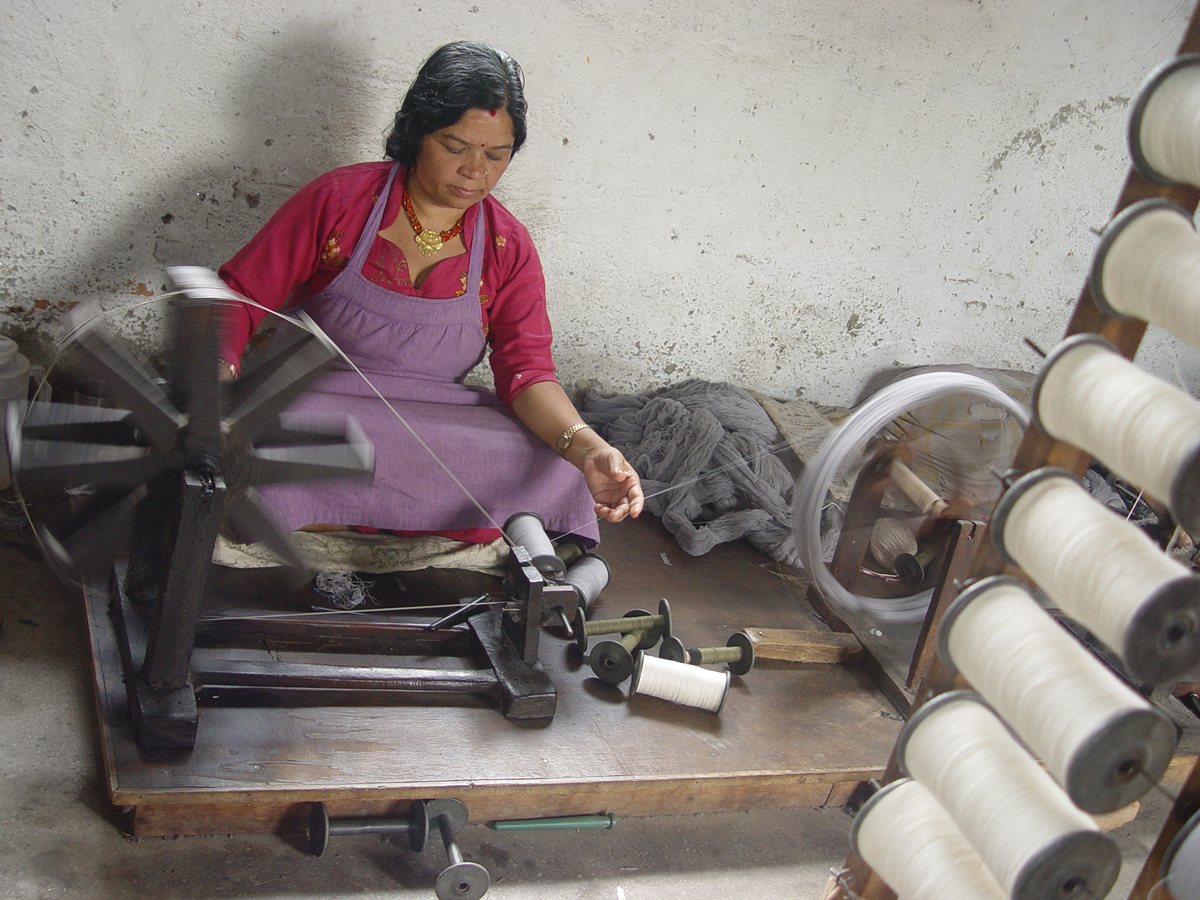
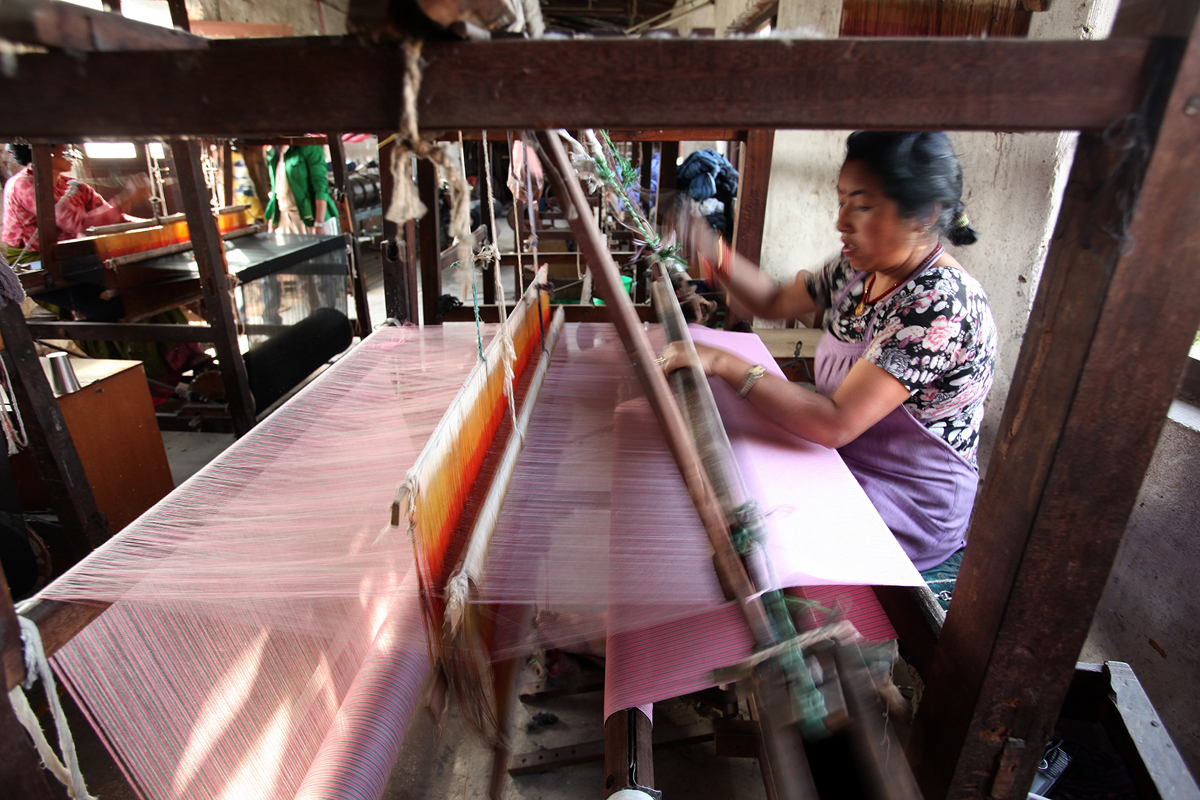
“We use eco fabrics and we equally give importance to reusing the waste material. We believe in a zero waste policy so we constantly upcycle our cut-outs and waste materials. We believe that everything has the possibility of new life, to be re-utilised and given new meaning, which is why I created a dress out of 30 year old newspaper named Pippa which is now preserved in the Fashion Museum in Bath.”
“By creating the Pippa dress, I wanted to share my creativity as an example of education on upcycling. Upcycling is the new recycling! Essentially, it is a more effective way to recycle whereby disposable products are taken and used to create something of more quality that is higher end. Unlike recycling no energy is used to do this meaning it is more environmentally friendly and beneficial long term. But more than that, it is a way of life; a way of life that can give opportunities to find new meaning for old things.”
Do you find you’re always looking to improve how you produce your garments?
“Yes, we do. Through blending sustainability with our ethical believes, we intend to create opportunities for village women in Nepal, by merging and turning their traditional skills into delicate fabrics and designs.”
“We are very grateful to Tulsi Meher Mahila Ashram (part of Mahaguthi, Craft with a Conscience, which works with over 1000 artisans and provide regular employment and support to producers throughout Nepal, working with 100 producer groups in 15 regions of Nepal) for supporting such skilled weavers for our special fabric production since 2011. We are always finding ways to improve our production process not just by using sustainable materials but also creating more opportunity to empower women.”
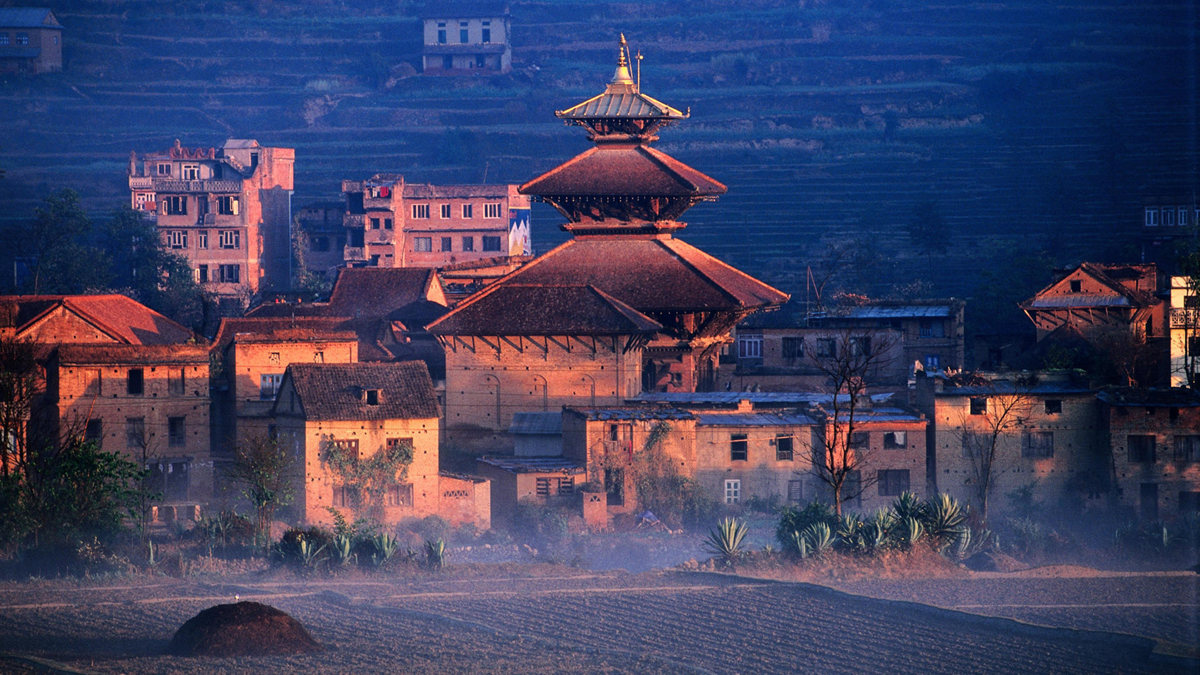
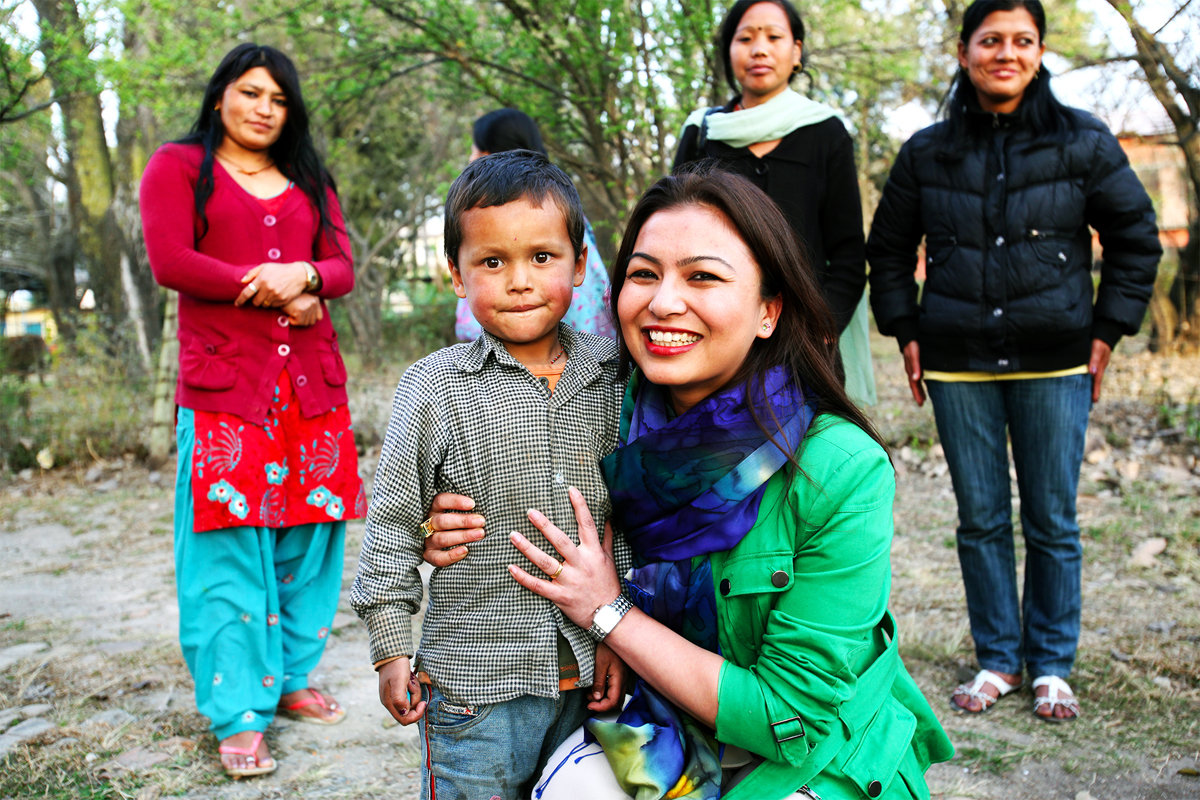
When you design, do you have to take additional elements into considerations because of the way you produce your gowns?
“To us, an essential ingredient in beauty is heart. We raise our children to understand that real beauty lives inside through the small acts of kindness and consideration for others that we exhibit every day, so why is this not practiced through the way that we consume?”
“Beautiful clothes have a conscious through the person that designs it with beauty in mind, to the workers and any creatures involved in the journey are protected and create this beauty everyday trying to make ends meet. Being cruelty free is being conscientious of our impact on the world and will reflect in the way that we sustain the world’s precious resources by making ethical choices.”
If you could sum up what eco-friendly production means to you personally, what would you say?
“It’s something that connects heart, connects people and planet in the best possible way. Fashion that cares for humanity and shows social and environmental responsibility, that is what ethical fashion means.”
Didn’t I tell you that this feature would be super inspiring? Beauty, soul, commitment and so much love – that’s Sanyukta Shreshta.
To find out more about the new collection and the Sanyukta Shrestha label, do take a look at the website.
Love Annabel x

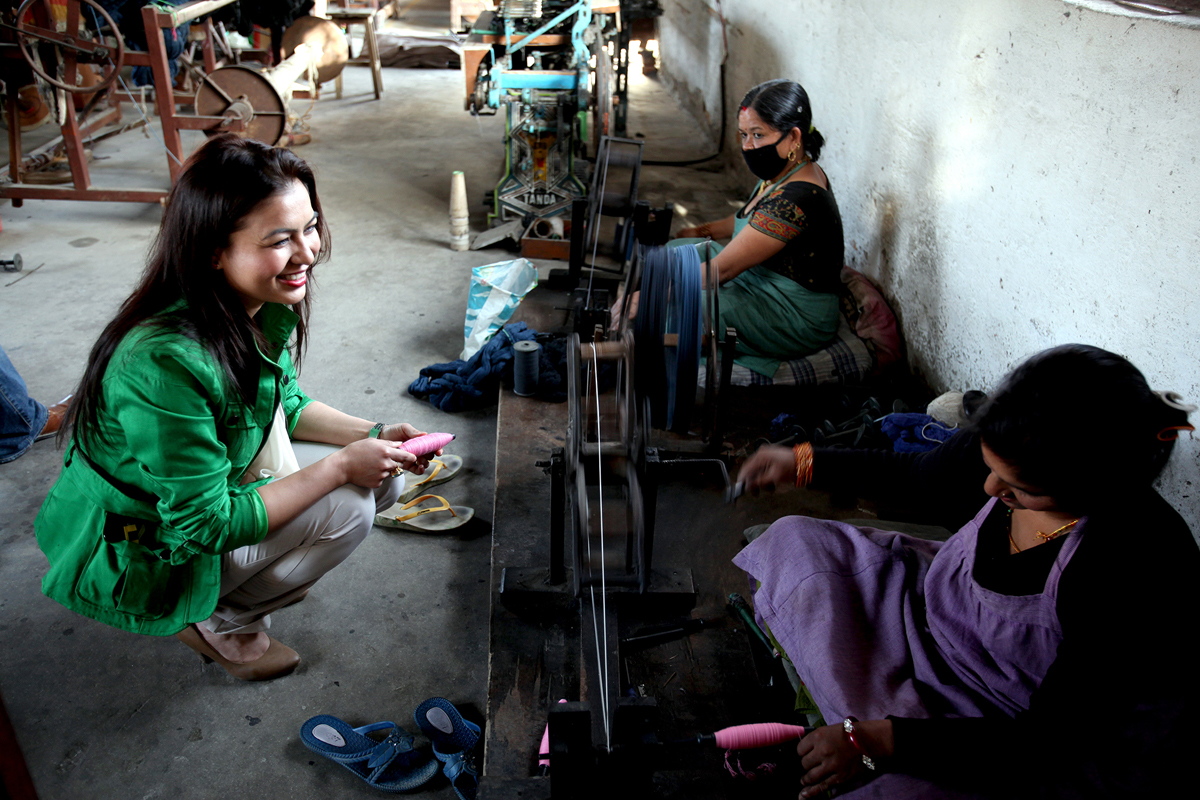
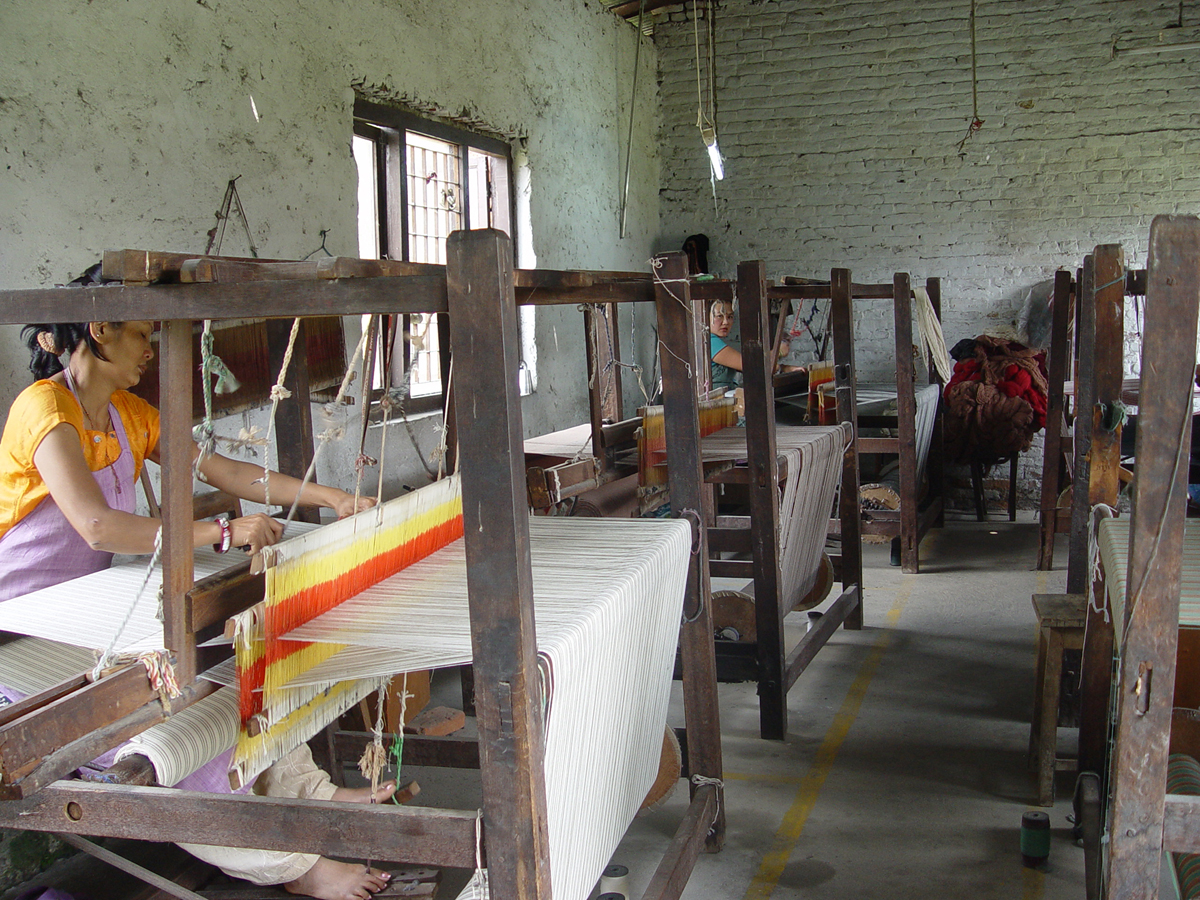
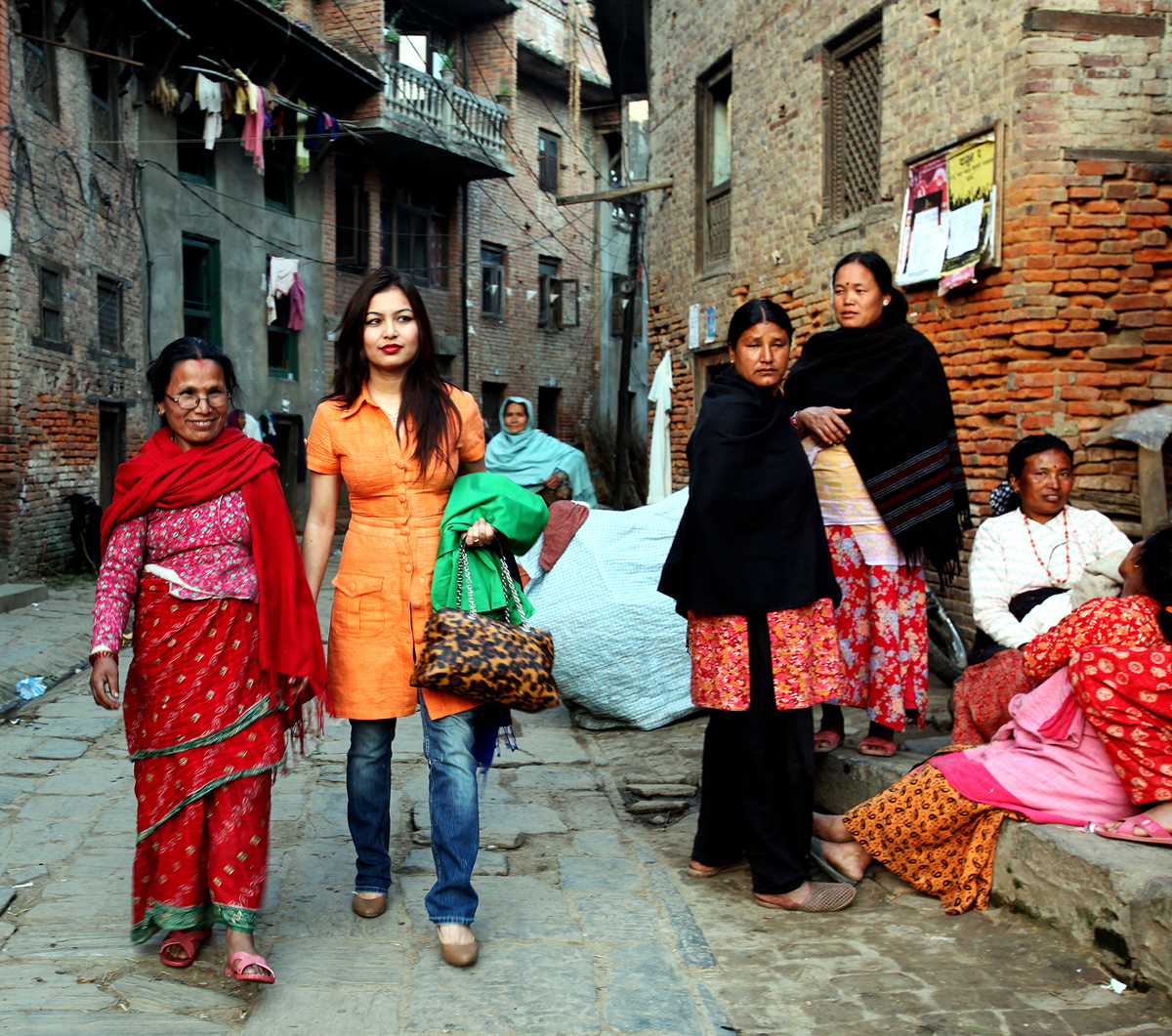
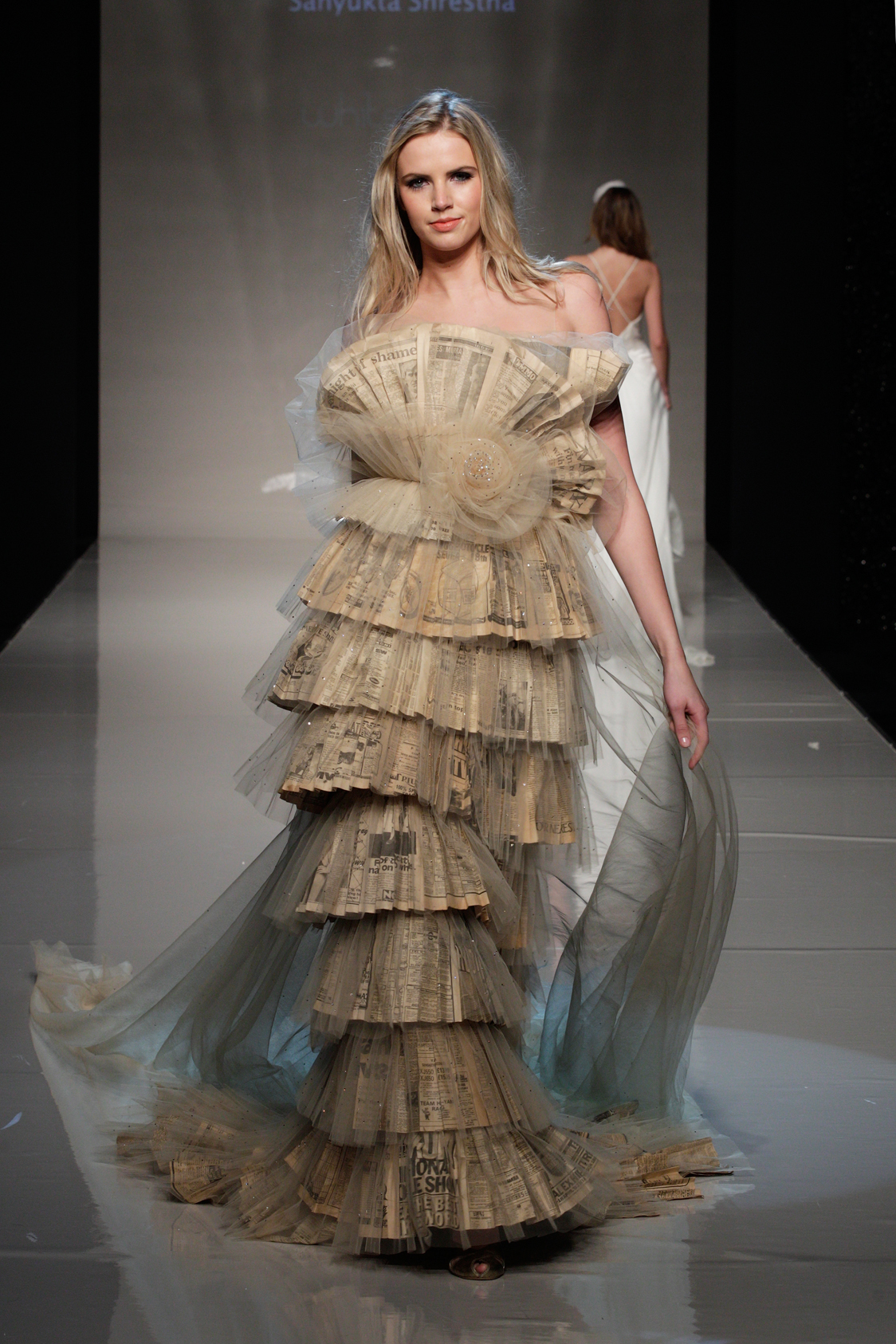
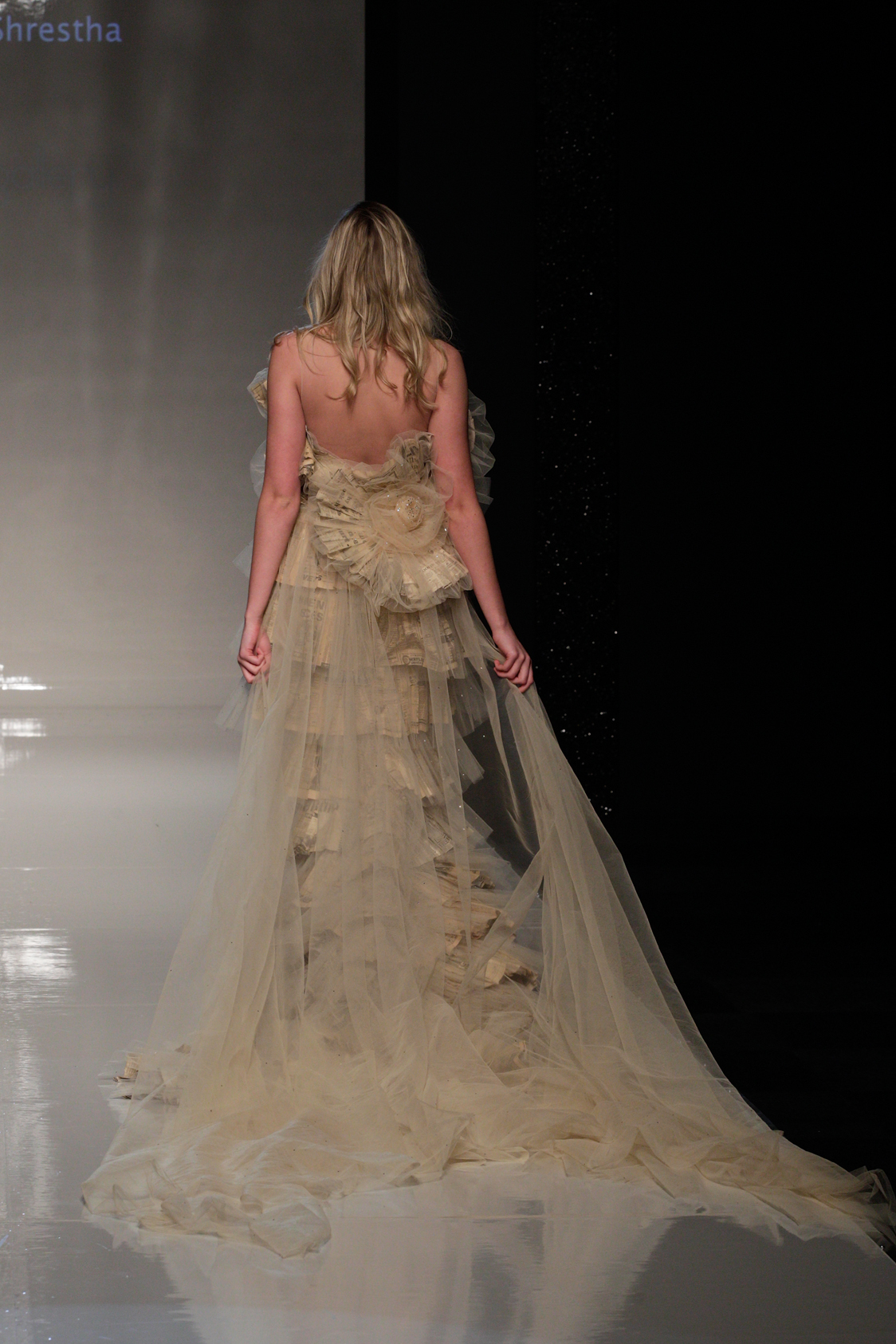
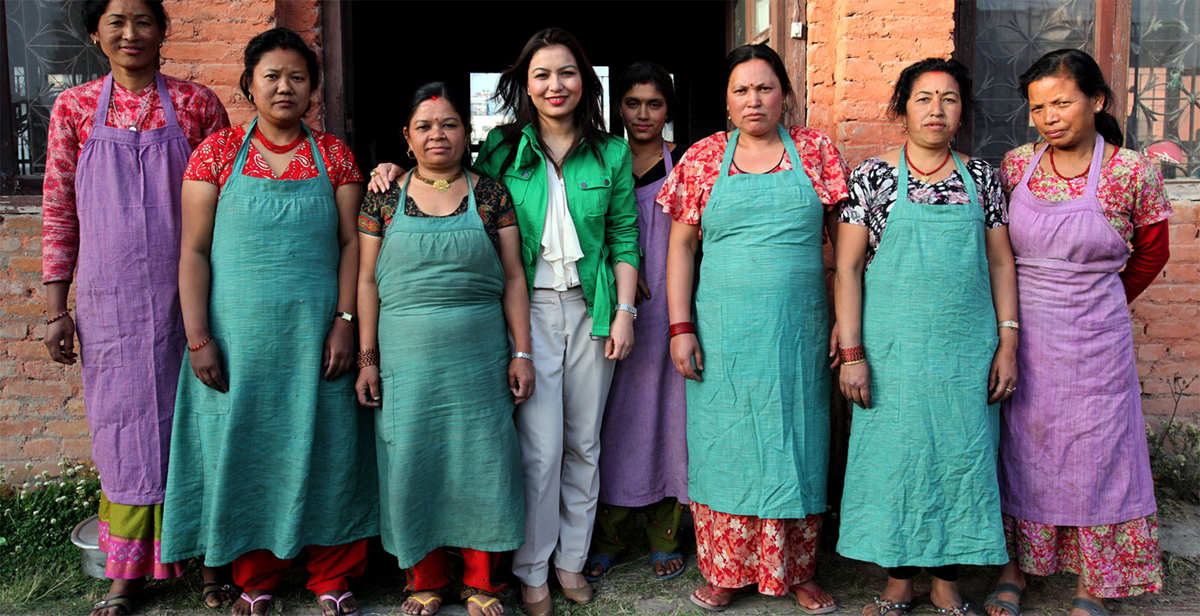

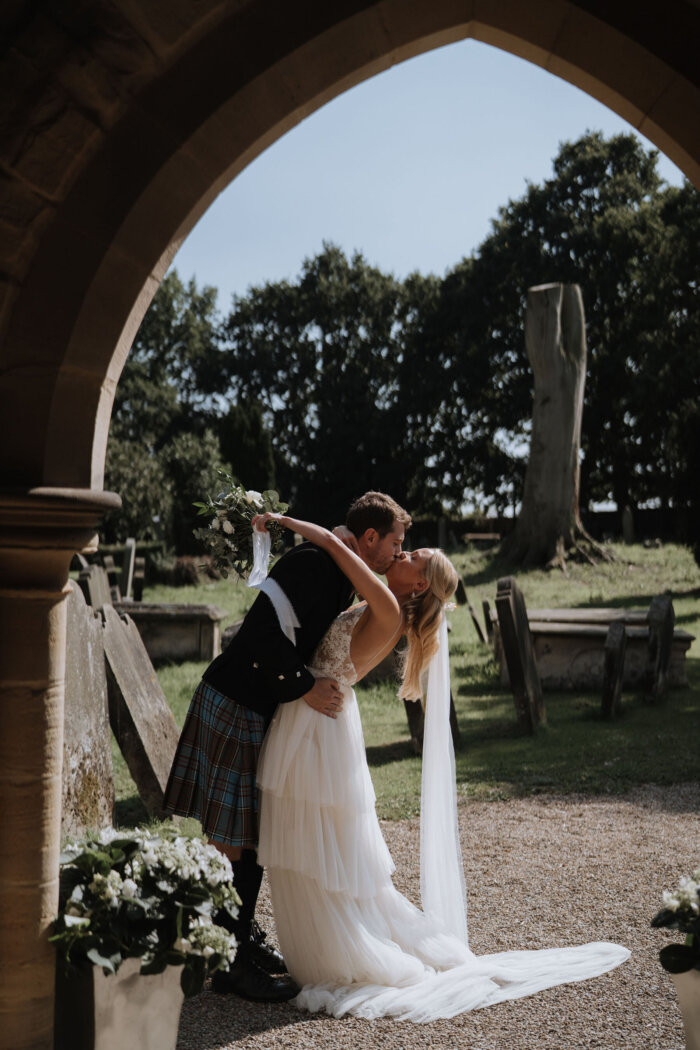
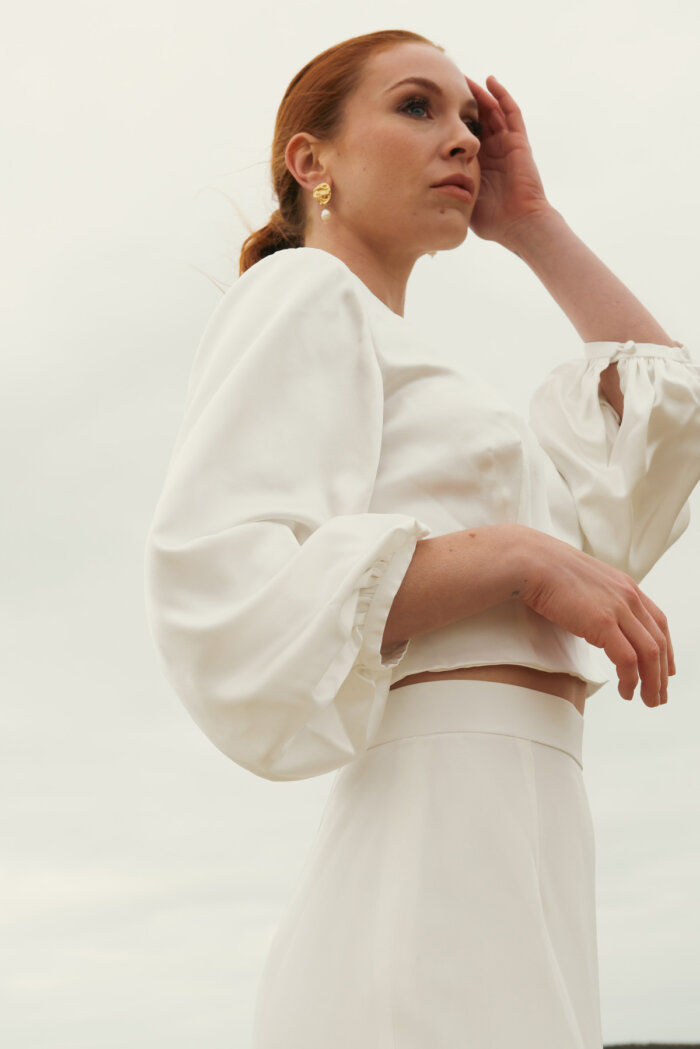
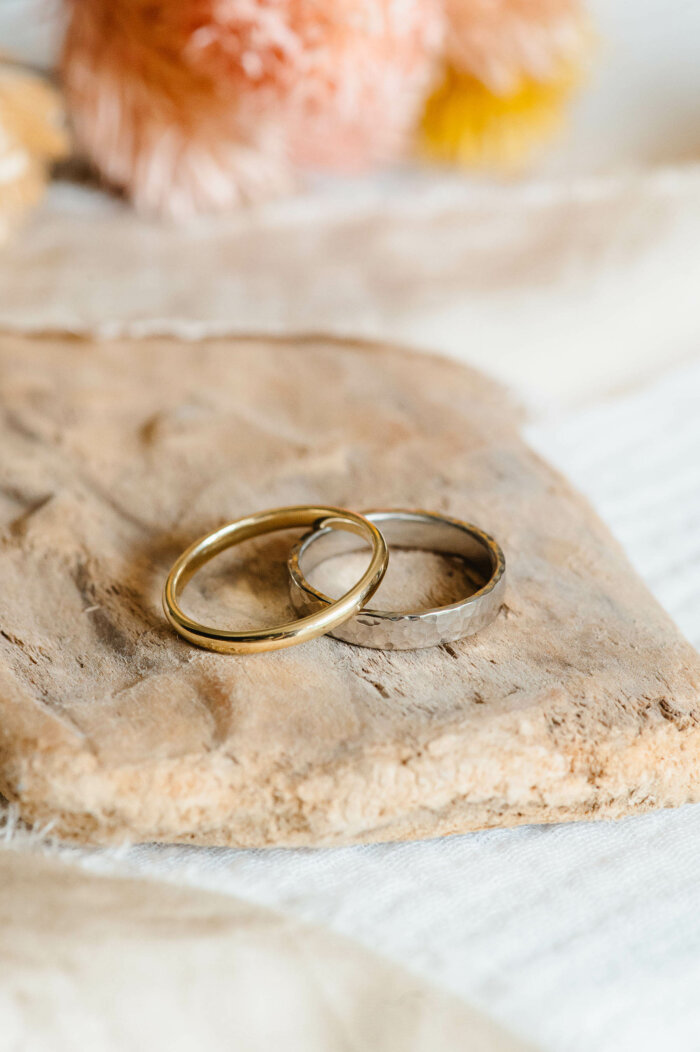
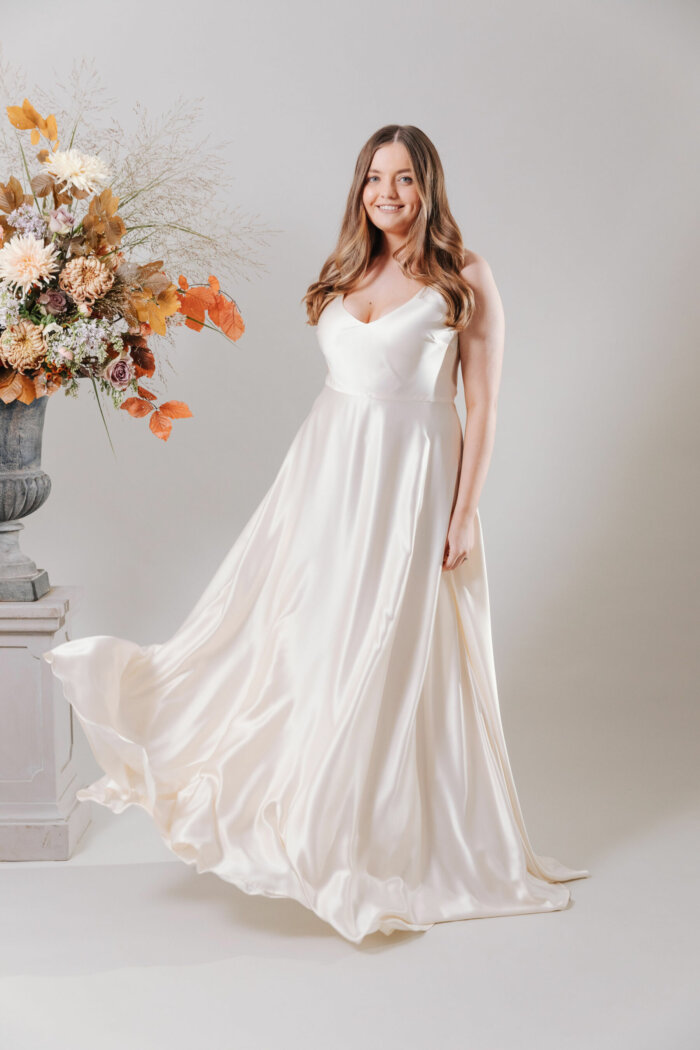
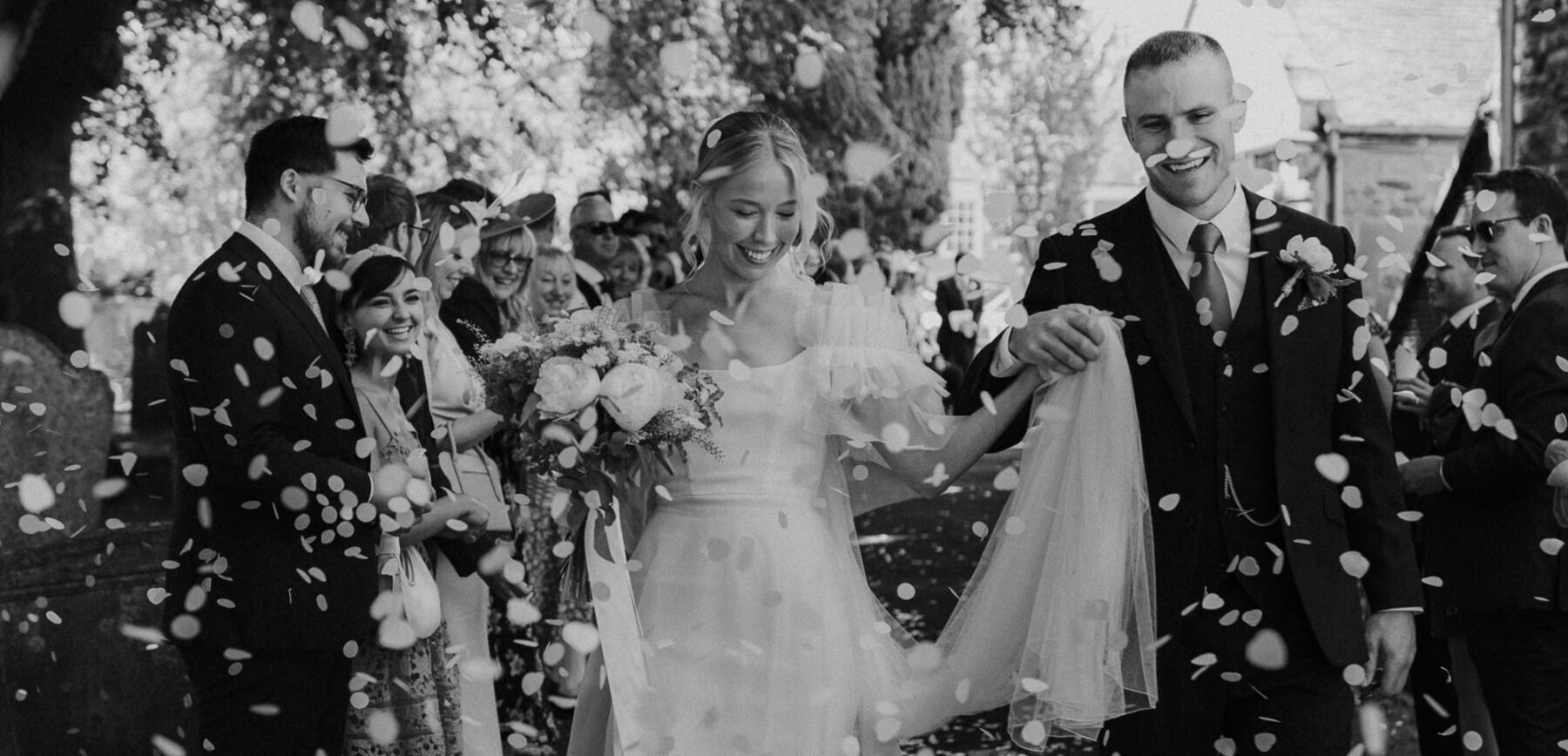
Love this post